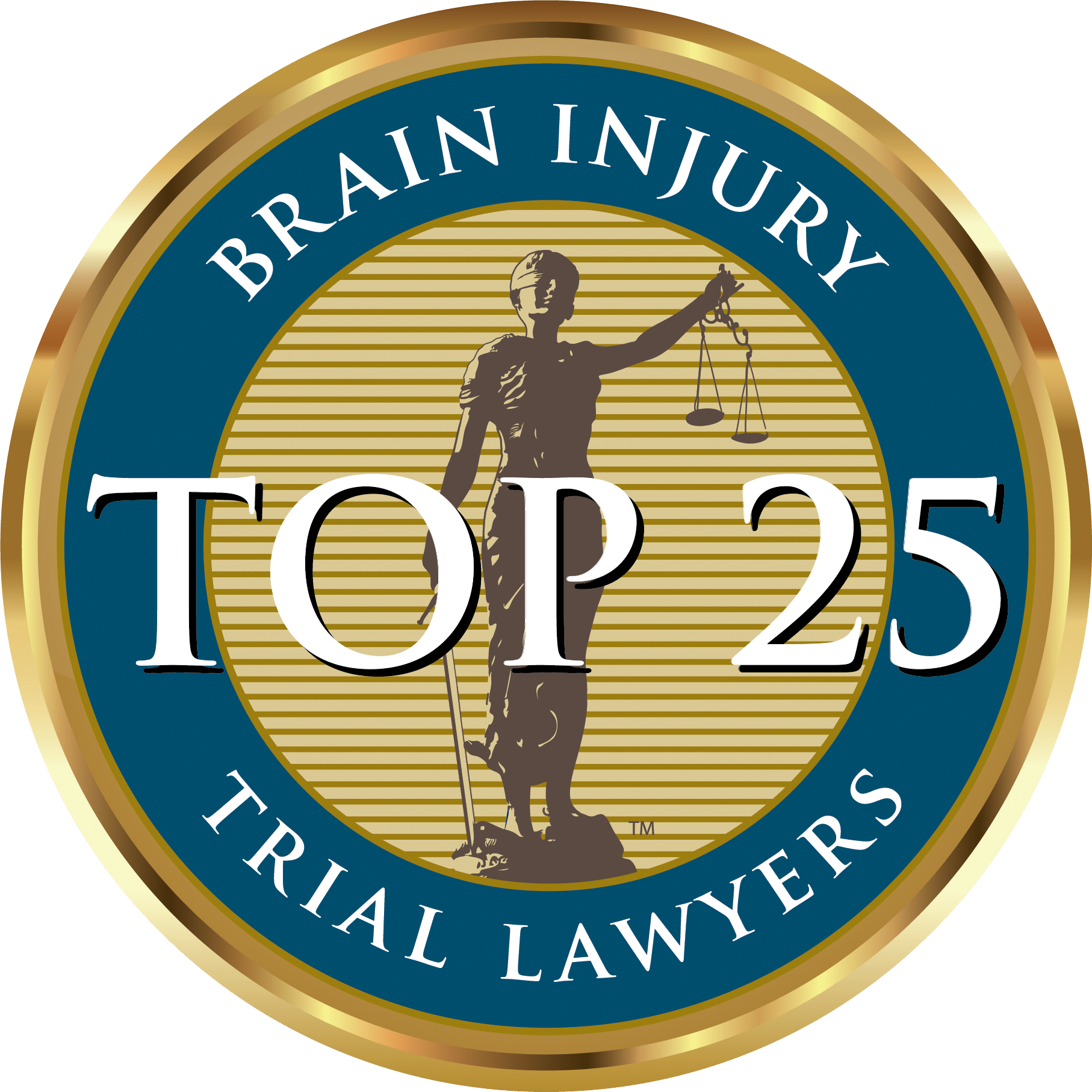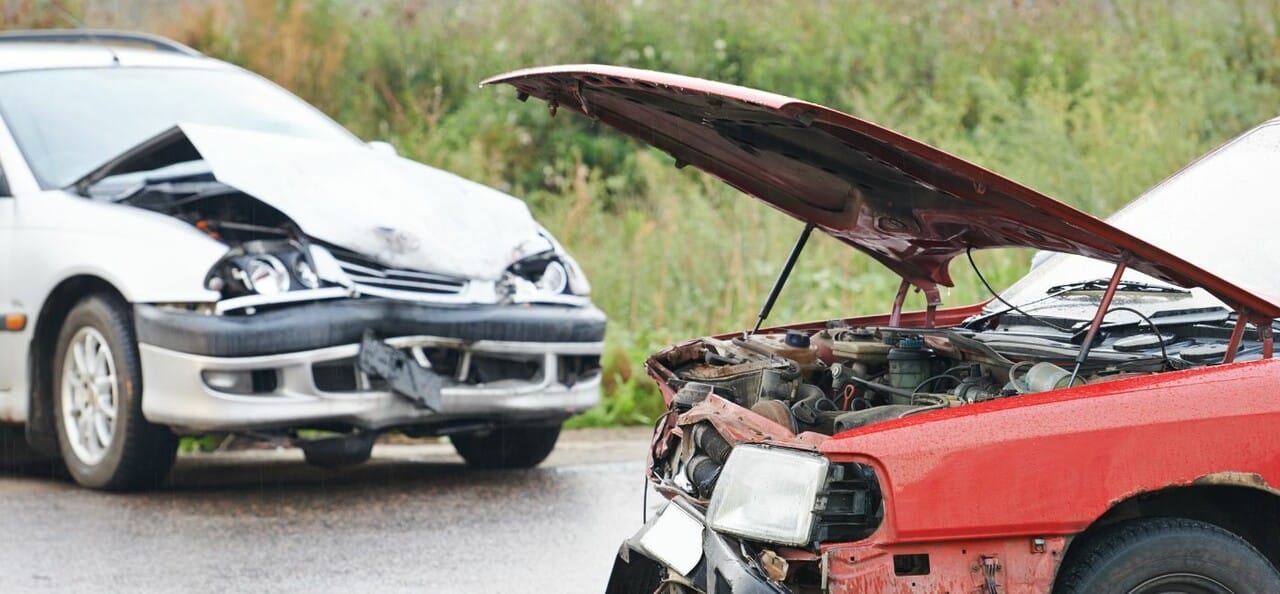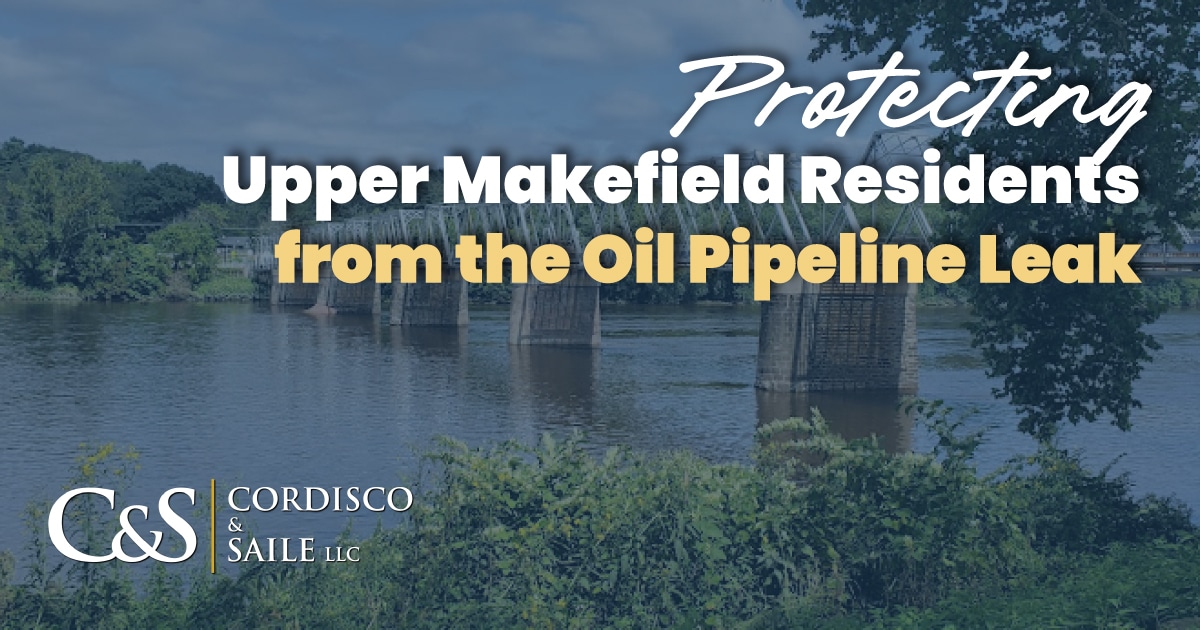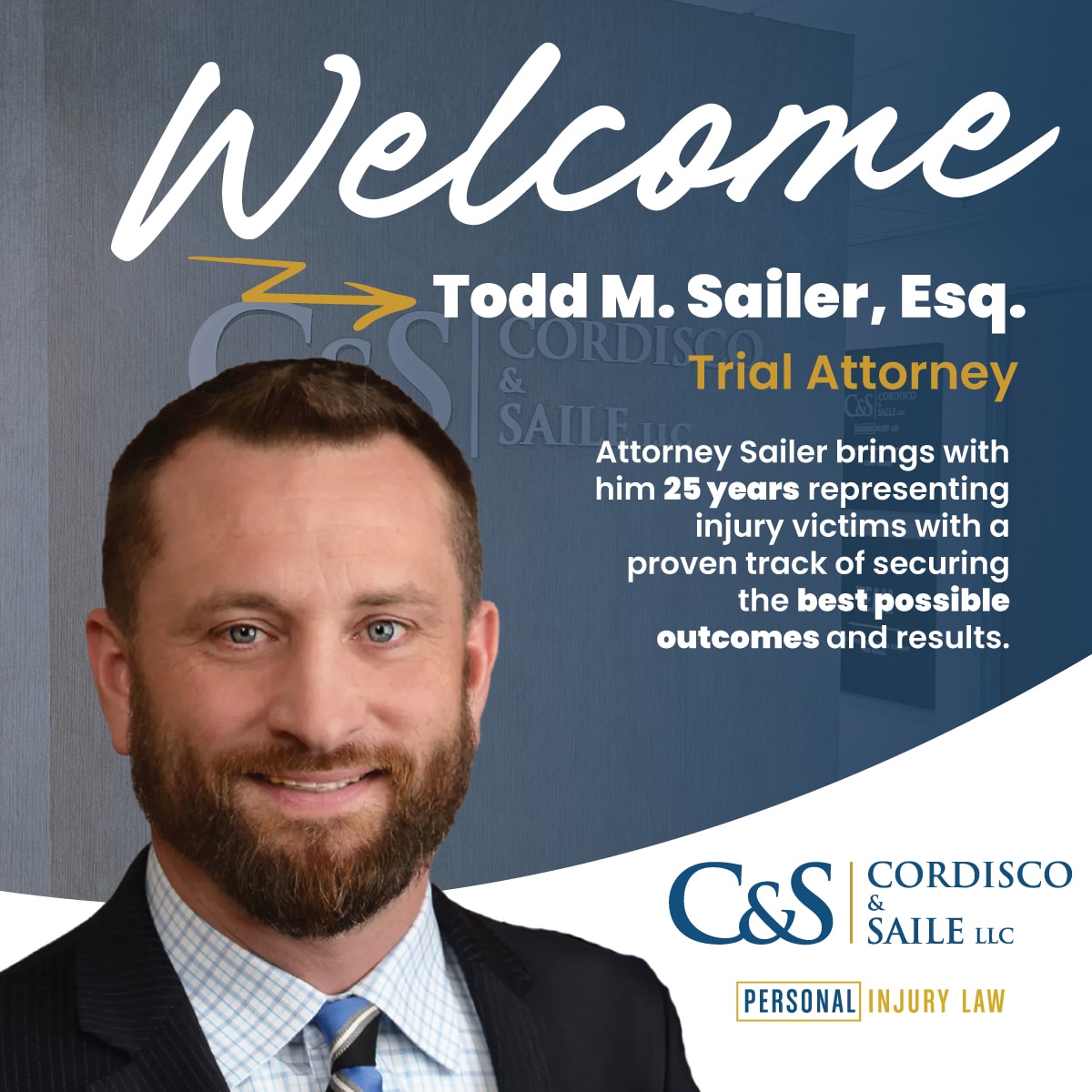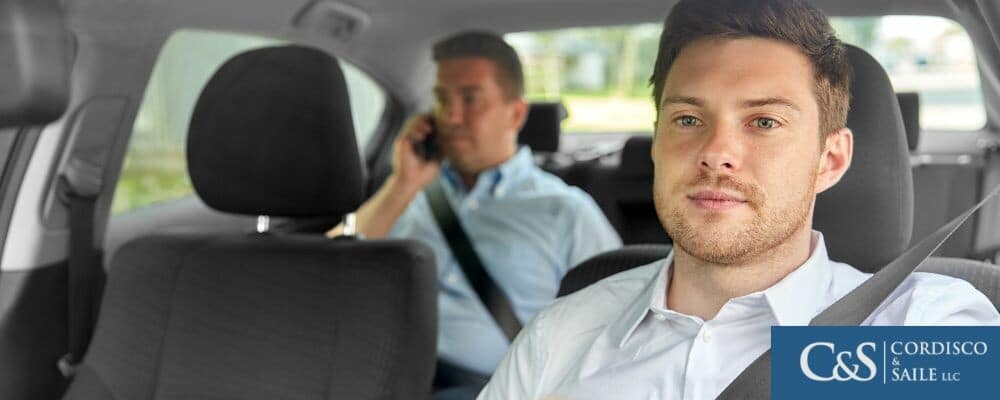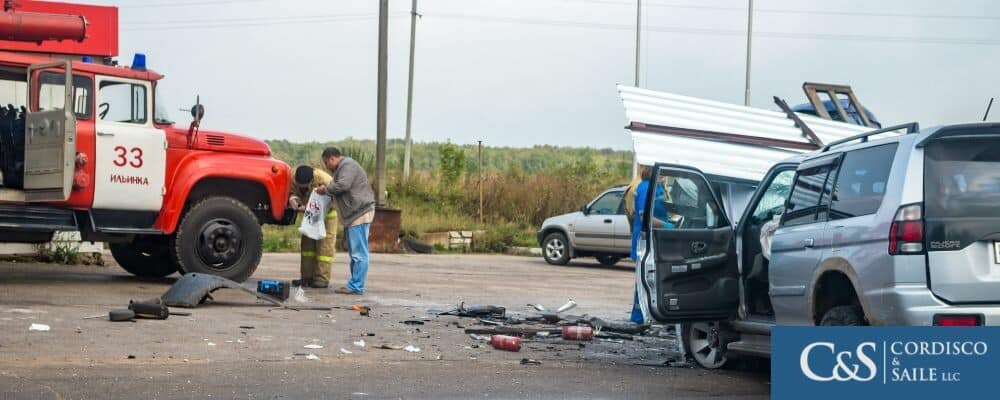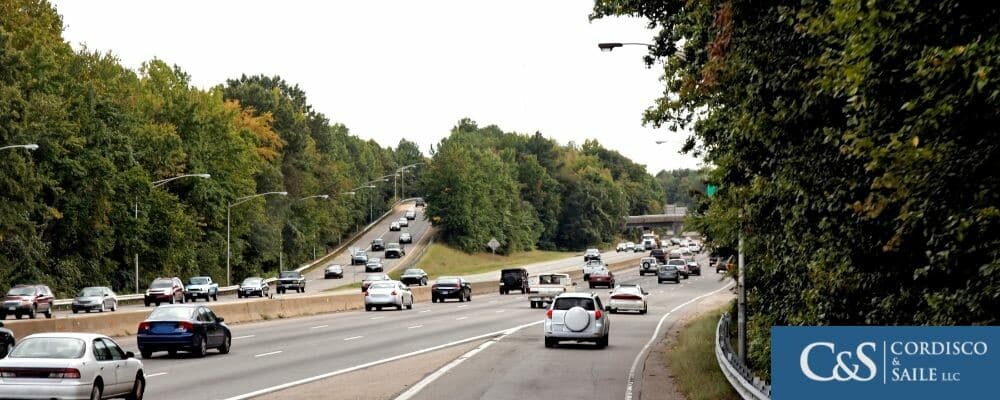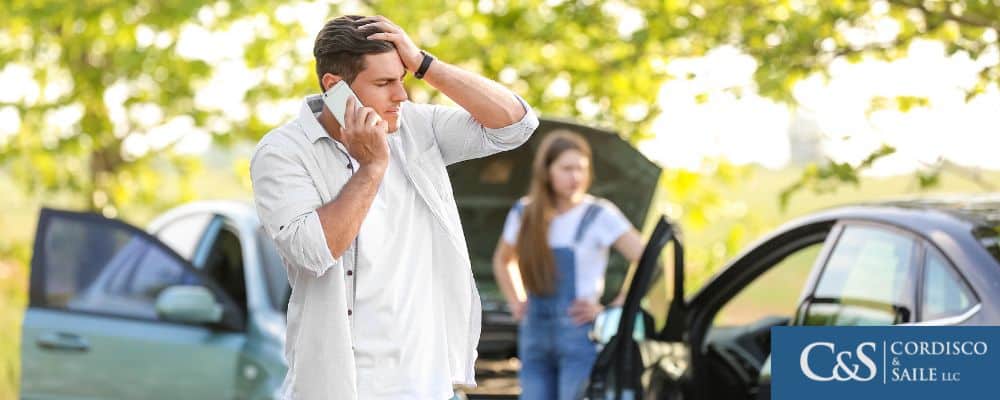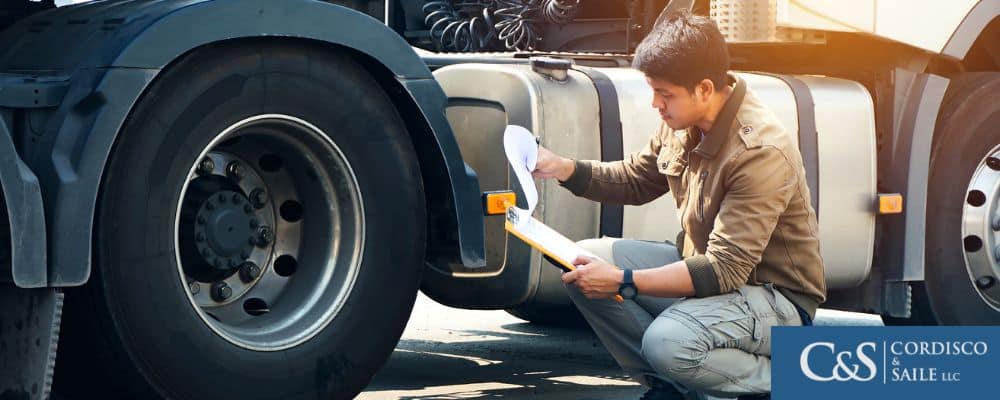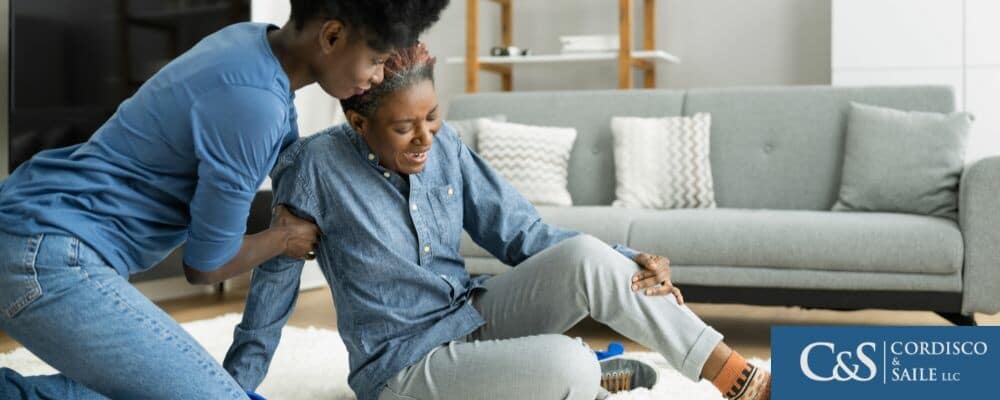Home > Blog
Blog
Category
- All
- Brain Injury
- Car Accident Injury
- Child Sex Abuse
- Firm News
- Insurance
- Legal Advice
- Motor Vehicle Accidents
- Personal Injury
- Premises Liability
- Safety Tips
- State Laws
- Uncategorized
All
- All
- Brain Injury
- Car Accident Injury
- Child Sex Abuse
- Firm News
- Insurance
- Legal Advice
- Motor Vehicle Accidents
- Personal Injury
- Premises Liability
- Safety Tips
- State Laws
- Uncategorized
Who Is at Fault in a Red Light Accident?
March 18, 2025
Who Is at Fault in a Red Light Accident? Red light accidents are an extremely common type of car accident. However, establishing who’s at fault ...
Read More...
Protecting Upper Makefield Residents from the Oil Pipeline Leak
February 6, 2025
Protecting Upper Makefield Residents from the Oil Pipeline Leak A recent oil pipeline leak in Upper Makefield Township has left residents with contaminated water wells, ...
Read More...
Cordisco & Saile Welcomes Todd M. Sailer, Esq.
January 6, 2025
Cordisco & Saile Welcomes Todd M. Sailer, Esq. We are thrilled to announce that attorney Todd Sailer has joined our team at Cordisco & ...
Read More...
Is Pennsylvania a No-Fault State?
December 18, 2024
Is Pennsylvania a No-Fault State? Pennsylvania is a no-fault state for car accidents, meaning that each party must first turn to their own insurance for ...
Read More...
Cordisco & Saile Celebrates the Dedication of John F. Cordisco Court at Conwell-Egan High School
December 17, 2024
https://www.youtube.com/watch?v=ORU8qAfNNF8 Bucks County, PA – Cordisco & Saile proudly celebrates founding partner John Cordisco on the dedication of John F. Cordisco Court and the Class ...
Read More...
When to Consult a Lawyer for a Truck Accident
December 10, 2024
When to Consult a Lawyer for a Truck Accident The best time to consult a lawyer for a truck accident is immediately after the crash ...
Read More...
Who Is at Fault in a Merging Car Accident?
December 6, 2024
Who Is at Fault in a Merging Car Accident? Lane merges are common causes of car accidents. As personal injury lawyers, we’ve heard the stories ...
Read More...
What To Do After a Car Accident That’s Not Your Fault
December 3, 2024
Navigate this Page What Steps Should I Take After a Car Accident That Wasn’t My Fault? How Do I Know a Car Accident Was Likely ...
Read More...
How Federal Regulations Impact Truck Accident Lawsuits
October 14, 2024
Navigate this Page What Are the Federal Trucking Regulations? Why Understanding Federal Regulations Is Crucial for Victims Can Federal Regulations Impact the Outcome of My ...
Read More...
Slip and Fall Statute of Limitations in Pennsylvania
October 14, 2024
Slip and Fall Statute of Limitations in Pennsylvania The statute of limitations for a slip and fall claim in Pennsylvania is two years from the ...
Read More...
Connect with Cordisco & Saile LLC About Your Options for Free Today
You can speak with a Cordisco & Saile LLC team member for free today. If you were hurt, we will assess your case and explain your next steps to recover compensation. Our auto accident lawyer in Bucks County can handle your claim or lawsuit while you focus on healing from your injuries. Call us today at 215-642-2335 to learn more.
